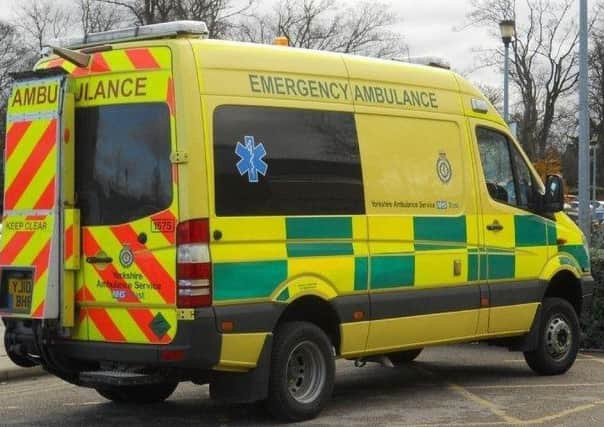YP Letters: Driving down 999 costs as ambulance service faces shake-up


Faced with ever-tightening budgets, the pressure to reduce payroll costs becomes overbearing. Yet how can an organisation such as an ambulance service fulfil the immense and unpredictable demands made of it with a dwindling number of employees?
The answer, in many cases, is for health trusts to look outside the National Health Service and employ private providers to plug the gaps.
Advertisement
Hide AdAdvertisement
Hide AdYet the price of doing this is almost always an extremely expensive one, piling yet more pressure on those hard-pressed budgets. Indeed, it is frequently the case that the money saved by reductions in staffing levels is dwarfed by the new expense of paying out for private providers.
In effect, then, this is a vicious circle, further complicated by the fact that there is often a perverse incentive for health bodies to use agency staff as, in doing so, they keep control of payroll balance sheets, thereby hitting Government targets, even though other costs might spiral out of control as a result.
Yorkshire Ambulance Service is now making a valiant attempt to square this circle by ending its contracts with most non-NHS providers, instead relying on staff shortages being addressed by a programme of recruitment and training.
It is only to be hoped that this strategy is successful and that it results in a fully staffed service which is cheaper and more efficient than the use of private providers.
Advertisement
Hide AdAdvertisement
Hide AdBut even if YAS is successful in attracting recruits and stemming the flow of experienced employees leaving what is, after all, a highly pressured and demanding environment, the service is still left wide open to arbitrary Government fiat.
When the sands at the Department of Health shift again and it is decided that staff costs are too high, will the demands for alternative provision return?
Or has the time come for a new way of ensuring that NHS trusts develop stable and cost-effective structures that can focus on the basic aim of delivering safe care?
Migrant misery
THE SQUALID “Jungle” migrant camp outside Calais has been a stain on Europe’s conscience for far too long and it can only be hoped that its clearance by French authorities, scheduled to start today, is a prelude to a just and orderly dispersal of its refugee population. Given the appalling record of Europe’s immigration authorities in dealing with the migrant crisis, however, no one is advised to hold their breath waiting for that.
Advertisement
Hide AdAdvertisement
Hide AdThe supposed child migrants now arriving in Britain present a case in point. No decent person could argue that children stranded in such a perilous environment should not be rescued and given a place of safety, or that Britain should not play its part in this.
Yet the sight of adult migrants entering Britain by claiming to be much younger than they are is not only an insult to the goodwill of the British people and a callous trampling on the rights of child refugees. It is also a severe indictment of this country’s border controls.
Indeed, the latest news that the Home Office was warned by local councils two months ago of the importance of carrying out age checks – and that other, even earlier warnings were similarly ignored – suggests that the Government has been bereft of any strategy for handling this crisis for a very long time.
If migrants are to be deterred from risking their lives to travel to Europe, and if UK public support for immigration is to be maintained, the Home Office has to demonstrate strict and fair controls. Yet instead there is confusion, chaos and a growing tide of human misery.
Silencing the phone pests
Advertisement
Hide AdAdvertisement
Hide AdTHE LATEST crackdown on nuisance telephone calls should be welcome news to the many thousands of people, particularly the elderly and housebound, whose lives are made miserable by an endless round of calls offering everything from PPI refunds to cheaper electricity.
The plan to hold company directors personally responsible for cold calls will surely act as a deterrent. However, given that previous initiatives have failed to stop the callers, who clearly have no regard for the anxiety and upset they cause, the victims of these persistent pests will need a lot of convincing before they can once again start to answer their phones with confidence.